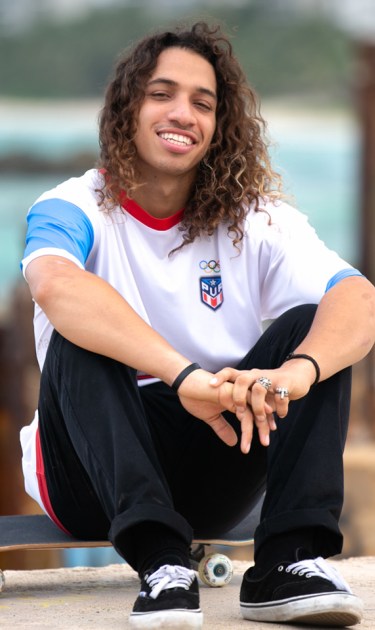Circular migration has long been a part of the Puerto Rican narrative. Second-class citizenship was forced on all Puerto Ricans in 1917, allowing boricuas to journey to and from the contiguous United States, and many have participated in revolving-door migration since. But recently, there’s been a wave of younger Puerto Ricans, including many who are second generation, repatriating.
Throughout history, families and individuals who are seeking job opportunities or wish to reunite with loved ones have moved stateside. In fact, currently, more Puerto Ricans live in the contiguous U.S. than on the archipelago. However, these settlements aren’t always permanent. Oftentimes, boricuas retire from stateside careers to enjoy their senior years in their homelands and middle-aged children relocate to Puerto Rico to care for ailing parents while others shuffle among various localities to nurture family ties.
Increasingly, though, there is a younger generation of Puerto Ricans reclaiming ancestral land. In recent years, many boricuas, particularly in early- or mid-level careers, have been purchasing one-way tickets to Luis Muñoz Marín International Airport. For some, the decision is political. In the midst of natural disasters, political corruption, multiple social crises and disaster capitalism aggravated by both local and federal governments, some feel a growing duty to participate in the local fight. For others, it’s economical. Gentrification across historically Puerto Rican neighborhoods in U.S. cities has led to displacement, forcing many to consider more affordable areas to reside and raise families. For several, however, there’s a calling—a feeling inside their bones they tried to shake off or multiple signs they attempted to ignore that they finally let lead them “home.”
At a time when hundreds of thousands of Puerto Ricans have fled the archipelago following Hurricane María, boricuas from the diaspora are returning in efforts to preserve culture, reclaim land, serve their communities and imagine a different reality for themselves. Here, multiple Diasporicans who relocated to Borikén in their 20s or 30s tell us what drove their decision and how their relationships with Puerto Rico has transformed.

These narratives have been edited and condensed.
Maylin Carrasquillo, 30, San Juan
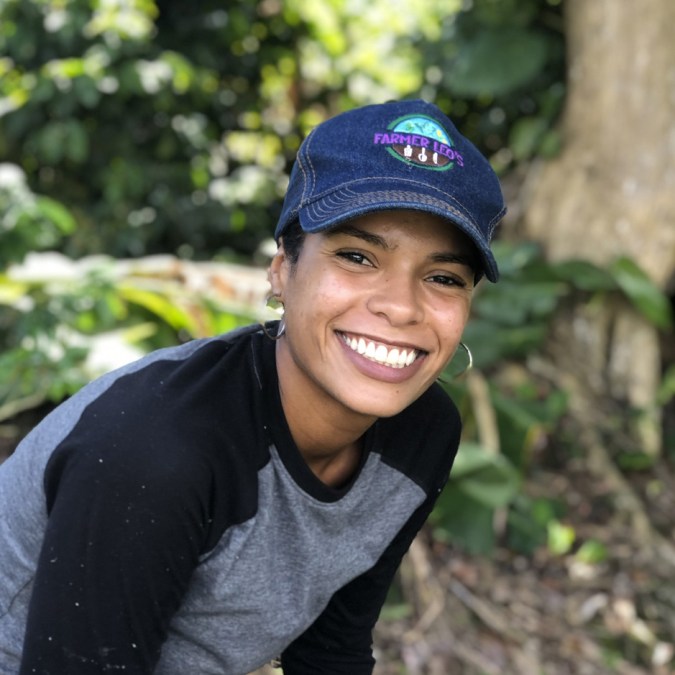
I was born in Río Piedras, Puerto Rico, but moved to Orlando, Florida, when I was four years old. East Orlando has a sizable Puerto Rican population, so boricua culture was always present. In my home, we spoke Spanish, danced salsa and didn’t listen to English music. We dined at Puerto Rican restaurants, bought from Puerto Rican supermarkets and enjoyed ourselves at various boricua events and festivals. During the summers, we typically returned to the island to visit family.
After high school, I joined the military and was stationed in Japan and California. When I left the service, I stayed in California and attended a community college. I was part of a program called Bridge to Doctorate, which essentially meant you go from a bachelor’s degree straight into a doctoral program. When graduation time came around, I applied to about six schools, including some in California, Florida and Puerto Rico, and got into all of them. While my advisers were encouraging me to pick the University of California, Berkeley, that’s not where my heart was. I knew I wanted to be in Puerto Rico, where my family had also returned to, and attend a university in my homeland. They thought I was “crazy” and that I wouldn’t have the opportunities or the resources I needed to excel over here. While it’s true that funding for the sciences in Puerto Rico isn’t like it is in the contiguous U.S., I’m happy that I trusted myself.
At the University of Puerto Rico, Rio Piedras, I work alongside some of the smartest and most driven people I have ever met in my life. I’m a plant pathologist and study Puerto Rican coffee, which means I spend a lot of my time working in farms and assessing diseases on the land. The work I do is critical to helping the agricultural industry in Puerto Rico, which is important for the archipelago to be self-sustaining.
Doing work that helps the land and future of Puerto Rico is fulfilling, but moving here was also important for me as a mom. I have a young son and have always known that I wanted to have more children. With the cost of living so high in the States, daycare wasn’t an option. I knew I wanted to be near my mother, who could help care for my son and future children.
There are so many reasons people, especially younger generations, return to Puerto Rico, even when their families, the media or their academic advisers tell them it’s a horrible idea that will somehow hurt their future. But have you ever heard that Willie Colón song, the one about our bandera? Our hearts are here. People might leave because of outside opportunities, but there is something here, whether that’s feeling accepted and seen, whether it’s about being somewhere that reminds you of your family or whether it’s just the enchantment of Puerto Rico, our hearts are always here.
Mikey Cordero, 37, Carolina
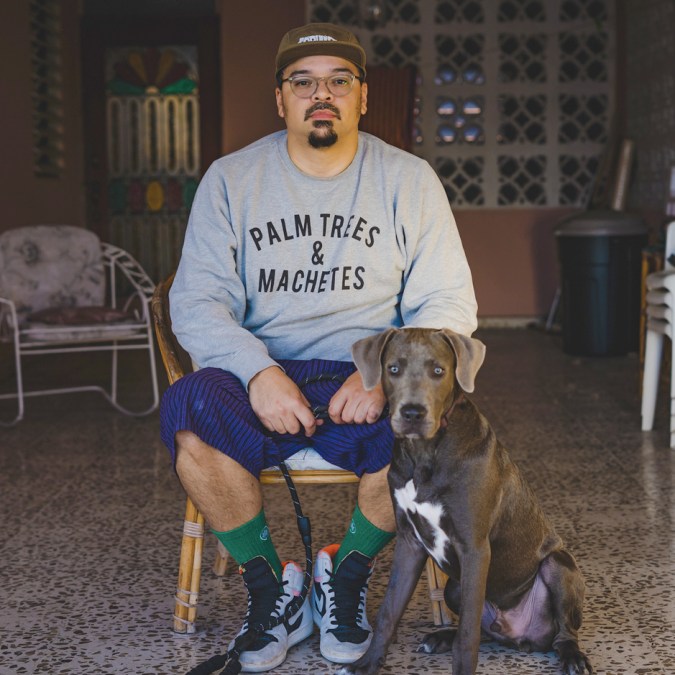
I was born and raised in Brooklyn to parents who were born in Puerto Rico but moved to New York as kids. In Bushwick, where it felt like most people were boricua, I was surrounded by Nuyorican culture. While I felt so Puerto Rican, during the summer trips I took to the archipelago every year with my mom and siblings, I realized I was Puerto Rican in a different way. Here, my friends called me “gringo” and told me I was an outsider. That created an identity struggle for me as a kid, discovering I wasn’t as boricua as I thought I was.
As I grew up and began working in media, arts and advocacy, I often centered Puerto Rico. As an adult, I continued to take trips to the archipelago but this time I traveled all around, going to Vieques and municipalities in the mainland outside of the metropolitan area. I did a lot of community work and got to understand Puerto Rico in new ways.
In 2016, I co-founded Defend Puerto Rico, a multimedia project designed to document and celebrate Puerto Rican creativity, resilience and resistance, with other artists and media producers from the diaspora. We didn’t think there were enough authentic narratives of Puerto Rico and Puerto Ricans in the media, so we took trips here to highlight the issues and the people doing important work. During those trips, I knew that I wanted to live here. It felt like Brooklyn didn’t love me anymore. There were so many changes happening there. Gentrification was rampant. Paying rent was wild. I was trying to find my place, and the signs were pointing to Puerto Rico. In addition to all the trips and work I was doing here, my grandparents’ home was essentially abandoned. Boarded up with no one living in the house, it hurt me that the home my grandfather built for his family was empty. I felt an obligation to take care of the home my ancestors created. I ended up leaving the nonprofit art education job I was working at and deciding to make the move in 2017, but right around the time I was planning on leaving Hurricane María hit. While I was out here often following the storm, documenting and helping, I ended up officially moving a year later.
As an adult, I’ve thought about my childhood identity struggle, and I’ve realized that being boricua, especially if your family migrated early to the States, you have an identity in two lands that don’t look the same. Your Puerto Ricaness is different in these two spaces because to be Puerto Rican is different in these two spaces. In New York, Puerto Rican nationalism looks like The National Puerto Rican Day Parade. In Puerto Rico, there are things happening every day that we need to show up for. Also, growing up stateside, regardless of how many trips you take to Puerto Rico, your culture is influenced by all the other cultures around you, and in somewhere like New York, the melting pot, there is so much shaping your identity. It’s critical to acknowledge that we may all be Puerto Rican but we are not all the same. Colonization and migration have divided Puerto Rican identity so much that it will take reeducation of who we are as a people to be more aligned. That, I think, is what’s happening in Puerto Rico right now, young people trying to realign and honor that identity.
Returning, though, needs to be done responsibly and holistically. There’s a growing issue of people from the diaspora coming, displacing communities and gentrifying areas — intentionally or not. When thinking about coming here and when living here, we need to acknowledge our privileges and be hyper-aware of the decisions we make here and if they fuel the crises that are present here.
Santana Caress Benitez, 33, San Juan
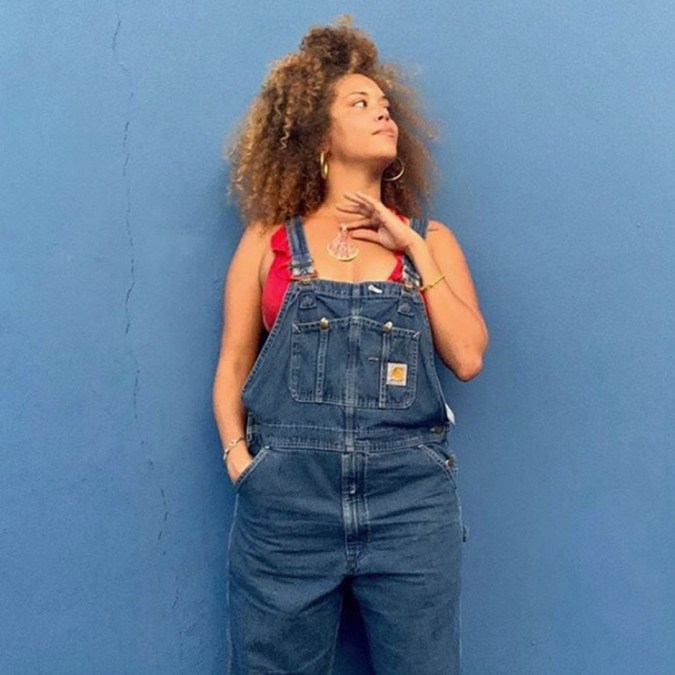
As the child of parents who were in the Air Force, I was born in Lakenheath, England, and raised in various countries and U.S. states, like Panama, Turkey, Texas, Florida and Washington, DC. Despite my global upbringing, my father still made an effort to introduce me to Puerto Rican and Caribbean culture. My family is from Vieques, and like many people living on the forgotten islands of Puerto Rico, they moved to Saint Croix. So wherever I was, there was still boricua and Caribbean food and music.
As an adult, I moved to New York, where I went to school and started my culinary career, including becoming a Food Network Chopped champion, and my acting career. Through my work, I traveled often, spending a few months in Puerto Rico in 2017. But after María hit, I, like many people I’ve met, felt an urgency to return, not just to visit but rather to live and to serve. I came back in September 2018 and have been living here since.
Because of my upbringing and work, I do consider myself worldwide. My job takes me all over the globe, especially to New York, where I end up spending a lot of my time. But I still consider Puerto Rico my home base. It’s here where I cook and create content for my Web series, “I’ll Cook Like Your Mother,” and it’s here where I run La Clinica de Comida, a free community food and acupuncture/alternative healing program inspired by the Black Panthers.
Living here has transformed my connection and relationship with Puerto Rico. I’ve always loved rivers and oceans, so being here and exploring the natural wonders of the archipelago has helped me feel closer to Puerto Rico and also more defensive of it. There are so many neighborhoods here that are completely abandoned. “Se Vende” signs are everywhere. A lot of so-called saviors come with what they think are great concepts for businesses and are buying up these properties. That makes me defensive because I don’t want what has happened in Rincón, a tourist hub that has been bought up by a lot of non-Puerto Ricans, to happen to the rest of Puerto Rico, for it to become a getaway home or open terrain to be capitalized on.
Even Puerto Ricans like me, who were not born or raised here, are capable of doing this. That’s why we have to be respectful when we come. It’s critical that we know our position, that we follow the lead of natives and that we listen and don’t take up space in social justice settings. My not being born here or not speaking perfect Spanish doesn’t make me any less Puerto Rican. I know who I am, I know my bloodline and I know I am home. But that doesn’t mean I know what it’s like to have lived and struggled here my entire life. My experience is different from my native friends.
Joanna Cifredo de Fellman, 33, Bayamón
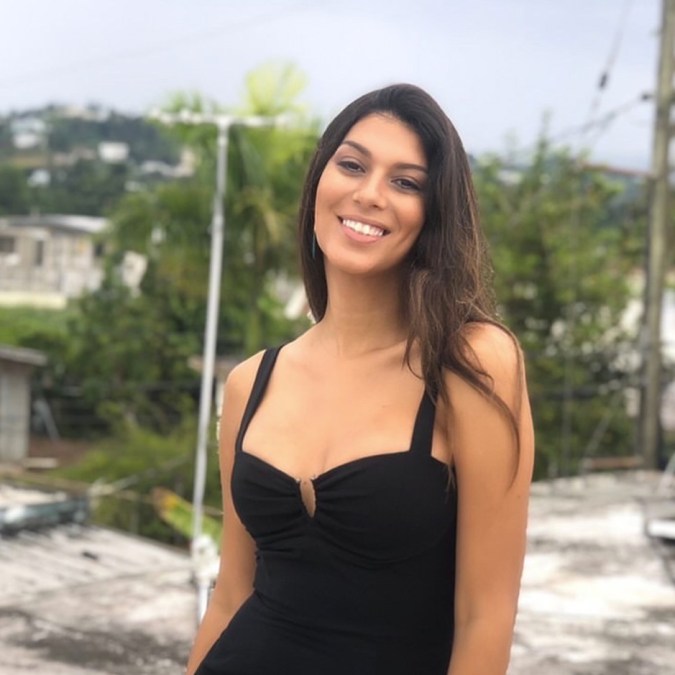
My upbringing was filled with circular migration. I was born in Bayamón but moved to Pompano Beach, Florida when I was two years old. As an adolescent, I moved back and forth twice before eventually settling in Orlando. Even with the moving around, I was always part of a large Puerto Rican community, from my Pentecostal church, which my family was very involved in, to my schools, which were overwhelmingly boricua. Still, I’d say I get my patriotism from my pro-independence dad who refers to himself as a machetero.
As an adult, I spent a lot of years in Washington, DC, where I worked in communications for various trans and queer youth organizations. After Hurricane María hit, however, I, like a lot of my friends in the diaspora, started asking myself: What are you doing for the long-term betterment of Puerto Rico? In pondering this, I envisioned Camp Albizu, a space that would bring together Puerto Rican youth from the diaspora with young islanders in Puerto Rico for a weeks-long celebration of Puerto Rican heritage, culture and organizing that serves to educate, create connections and have the youth imagine a new just and sustainable reality for Puerto Rico together.
In 2019, I got married and bought a home in Bayamón, right across the street from the house I lived in as a baby. Since moving back, I feel even more responsibility. Puerto Rico is both land and people, and both of them are in crisis right now. As a trans woman, I come from a community that has been in crisis for a very long time, and I am one of few trans people who have been able to get beyond a place of just surviving. With that, I’ve been working with trans and queer young people here in Puerto Rico, helping them through unhealthy school climates, physical and sexual abuse and a lack of family support. As I embark on Camp Albizu, I have put together a team of mostly young trans and queer boricuas. My goal isn’t to take up space but rather to be in community and have my skills and privileges be utilized for movements happening here.
There is a lot of mysticism around Puerto Rico. For some, it’s a dystopia, filled with violence, poverty, drug abuse, political corruption, natural disasters and a lack of opportunities. That’s the image portrayed in the media, and that’s the message most of us receive when we tell our families, friends, colleagues or classmates that we plan on moving here. But for others, Puerto Rico is a utopia, with stunning natural sites, delicious food, vibrant people and an enchanting essence. Living here has taken away some of that mysticism for me. The truth is that Puerto Rico lies somewhere in the middle and that Puerto Rico is still one worth returning to and respecting.
Christine Gutiérrez, 34, Cidras
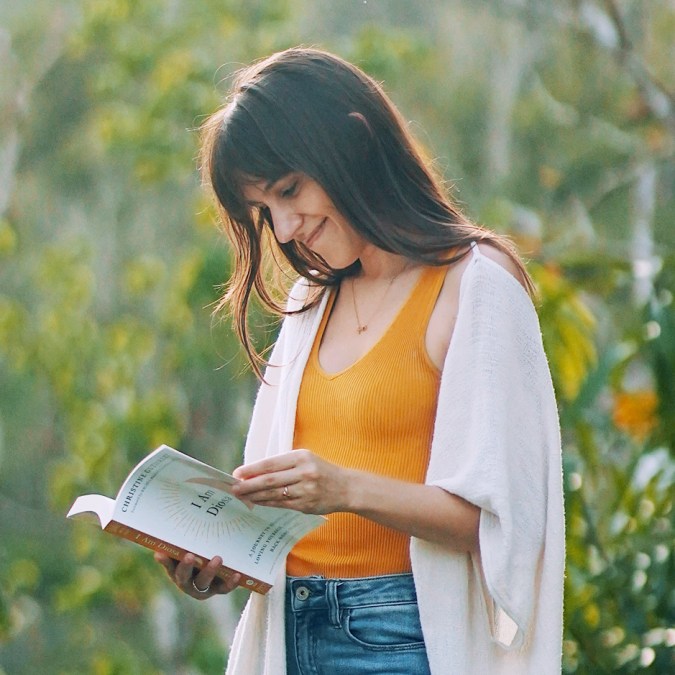
I’m Nuyorican. I was born in Queens but raised in the Bushwick neighborhood of Brooklyn. It was a predominantly Latino, and Puerto Rican in particular, community. My parents worked, so I was largely raised by my grandparents. With them, Puerto Rican culture was embedded in everything around the house. They cooked boricua-style foods, played Puerto Rican music and only spoke in Spanish. They sparked my earliest interest in that faraway land that would end up being so vital to my being.
When my grandparents left New York to return to Isabela, Puerto Rico, I’d visit them during summer breaks. It was the first time I was really able to connect with the land. I remember eating fruits picked straight from the trees and just living the campo lifestyle. I was connecting with my roots, and I loved it. I knew then that I wanted to live here.
In 2010, after I got my master’s degree and had started my business, I ended up moving to the archipelago and living here for three years. I moved back to New York temporarily, but I knew I’d end up in Puerto Rico again. I returned nearly two years ago, got married and now have a beautiful home in Cidras, a municipality in the central region of the main island, where we live with our puppy Bodhi. We call our residence Cosmic Casita. For me, buying land was about being in our home and working with our tierra and our medicines. But it’s also about giving back to our homeland and people. As a therapist, I work with young Puerto Ricans, especially those who are dealing with abuse and addiction, and I want my land here to be a safe retreat space for gathering and healing.
But being here has also been healing for me. It has reconnected me to my purpose, which has always been to work with Latina women. Living here, I work closely with what I call my Diosa Community, but I still work with Latinas outside of the archipelago as well. For instance, last month, my debut book I Am Diosa, which merges ancestral wisdom with psychology to provide readers with tools to become a healthier version of themselves, was published by Penguin Random House. In addition to grounding me, I think moving here has also made me more protective of Puerto Rico. Since relocating, I’ve learned so much about the political history and colonial relationship between the U.S. and Puerto Rico as well as the injustice that has been done and continues to occur. Knowing this has made me more protective of our land and people and more conscious of how I live here.
For me, what’s most important is preserving our culture. I think so many younger people are returning to Puerto Rico because they understand that the way of life in the U.S. is not sustainable. Working nonstop, hustling every day, contributing to global crises, that’s not how we should be living. I think many of us are being called back to nature, to ourselves and to our culture, and it’s critical for us to preserve it when we are here. If not, our history, our traditions and our power are lost.
Steven “Yancy” Piñeiro, 23, Toa Baja
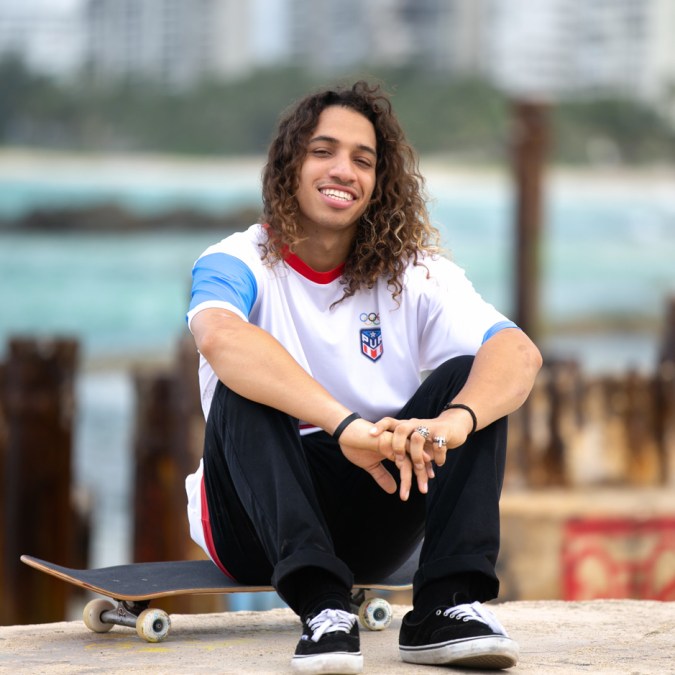
I was born in New London, Connecticut, and raised in Florida, living in Jacksonville and Orlando. Generally speaking, boricua pride is pretty strong in most Puerto Rican households, so I don’t think mine was very different: rice and beans most days, salsa and reggaeton played regularly, novelas were always on the television and we’d visit the island as much as we could every couple of years.
While Puerto Rican culture was present, I don’t think I had really imagined myself moving here one day. It happened suddenly and unexpectedly. My life was kind of a mess and felt like it wasn’t going anywhere. I was really unhappy. The only [time] I enjoyed myself was when I was on vacation, and I was always dreading coming home. I just felt stuck and unmotivated.
I had visited my dad, who moved here, last March and fell in love. I was happy, I was skating and I was surrounded by family. It felt good, a feeling I hadn’t felt in a long time. A couple [of] months after returning to Florida, I asked my dad if he could look for a spot for me. In a matter of weeks, I bought my ticket and moved. I’ve been here for a year, and I can say it’s the best decision I’ve ever made. Not only am I happier living here but I’m more motivated. I’m in the best shape I’ve ever been in my life and that has benefitted my athletic career.
I’m a skater, so aside from my accented Spanish signaling that I wasn’t raised on the island, my style of dress really makes a lot of people here, mostly in the campo, confused. But I actually now represent Puerto Rico in professional skating. Last year, for instance, I took home the silver medal for Puerto Rico in the ANOC World Beach Games. I’m currently training like an Olympian, hoping and believing that competing at the games is a possibility.
Before the COVID-19 pandemic, I was traveling around the world skating. But unlike before, when I used to extend trips, I’ve been trying to get home earlier. I miss Puerto Rico too much when I’m away. This is the feeling of home I don’t think I’ve had before. My dream is to buy a home in a town near El Yunque, grow my own food and live there till I’m old. It’s not about Puerto Ricans from the diaspora coming here to buy properties and setting up Airbnbs. If that’s your goal, don’t come.
Yasmin Hernandez, 45, Aguada
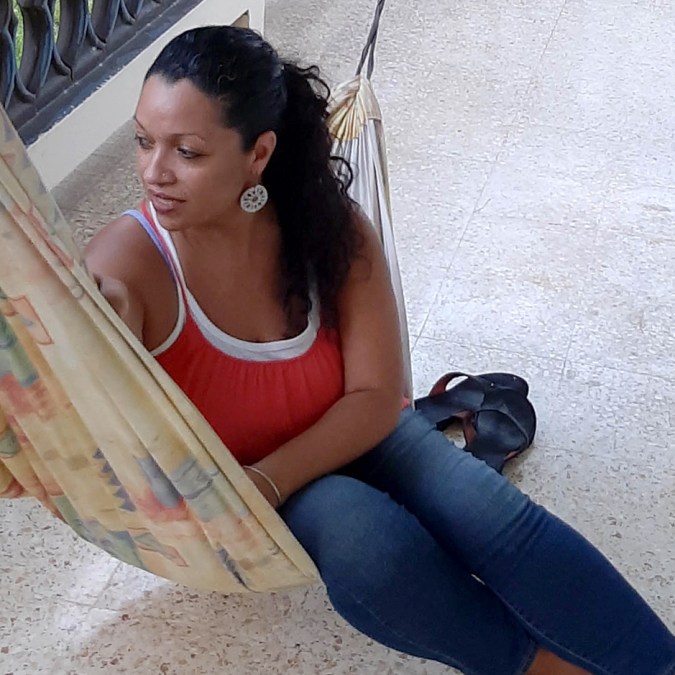
Growing up Puerto Rican in Brooklyn, New York, in the 1980s, I developed an identity crisis. I had an early sense that to be white American was to be more privileged, and I internalized messaging about lightness and whiteness and wanted to associate myself with that. My dad realized something was up with me in high school when I became a metalhead and was dressing in all black. During our morning rides to school, our conversations changed. He began telling me about Puerto Rican nationalism, history and political prisoners. Before class started every day, I already had a one-hour lecture on Puerto Rico from my dad. I realized there was a huge gap between myself and the love I had for Puerto Rico. As a result of those morning talks, I used art to connect to Puerto Rico and ended up dedicating my entire creative practice to exploring and excavating that suppressed history around Puerto Rican liberation.
As an artist centering Borikén, I often took many trips to the archipelago. I, like a lot of people, always imagined myself retiring here. But in my 30s something changed. I was working on a project around Vieques, so I was there a lot of the time. I began to feel jaded by New York, both the work culture that promotes running yourself to the ground as well as the way we internalized violence and rarely spoke with each other from places of love. It wasn’t like that in Vieques. There, you can have entirely different political beliefs and still treat each other with love and respect. There, someone who is pro-statehood picks up someone who is walking back from a pro-independence rally. That’s what you do: you help despite differences. This introduction to the Caribbean way helped me realize how self-righteous the culture was at home. I didn’t want to leave. I was literally in physical pain because my spirit felt like it needed to be here. But I was a mom, and I had to go back to New York. Leaving Puerto Rico that May in 2013, I told myself that the next time I came to Puerto Rico it would be with a one-way ticket.
When I returned to New York, it felt like the walls were closing in on us. My husband and I had issues with our job, with money, with our landlord and with health insurance, all while I was pregnant. A year later, without jobs lined up for us or anything, we moved to Puerto Rico. Friends thought we were “crazy” and relatives were hurt. My family had just lost my brother, so in a way my parents felt like they were losing me and their grandchildren as well. My husband’s father, who migrated to New York from Colombia, also took it hard because he felt like he sacrificed so much to give his son a life that he now wants to leave. It was hard, but we are the type of people who do what feels right, and this move felt right. And it was.
My connection to Puerto Rico has crystalized since moving here. It took off to another level. I’m a spiritual person, but I think people have this experience even if they’re not. You clap when you arrive here and cry when you leave. It’s the so-called Isla del Encanto. Living here, this land feels more like a breathing entity to me. It revealed itself as a teacher, mother and goddess, and I observed, listened and learned. I refer to my process as a “rematriation” versus repatriation because I recognize how this land serves as my teacher to decolonize me and restore me back to my essence. Rematriation more accurately refers to this journey as it is a literal return to the womb.
